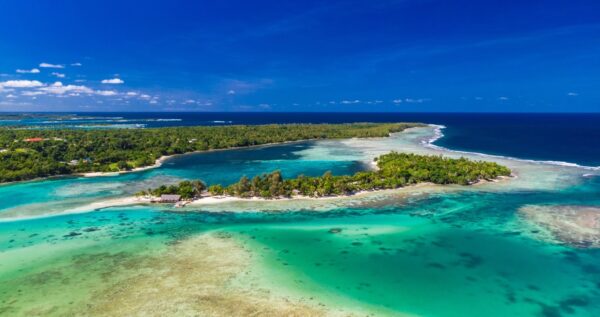A global maritime court has determined that greenhouse gases constitute marine pollution. The International Tribunal for the Law of the Sea (ITLOS) said emissions from fossil fuels that are absorbed by the oceans count as marine pollution.
What is the ITLOS advisory opinion and what did it say?
Client Earth explained the background to the opinion and what it says: The Commission on Small Island States on International Law and Climate Change asked the International Tribunal for the Law of the Sea (ITLOS) for an advisory opinion on the scope of State obligations to protect and preserve the marine environment. Specifically, they are seeking to ascertain what obligations countries have to reduce their greenhouse gas emissions in order to protect the ocean.
The first step was the submission of written statements by State parties and invited intergovernmental organisations (i.e. African Union, European Union, IUCN). The deadline for this was 16 June 2023. 32 states, the European Union and nine intergovernmental organisations – including a commission of small island states (COSIS), the African Union and the International Union for the Conservation of Nature – filed submissions on the content of State obligations under UNCLOS (United Nations Convention on the Law of the Sea) in light of the climate crisis.
In May 2024, the tribunal gave its advisory opinion. It said the following:
- Countries have an obligation to reduce their emissions to protect our ocean.
- Countries’ climate action may need to go beyond the international climate treaty – the Paris Agreement – for them to meet their legal obligations on marine protection.
- Countries with the greatest historic responsibility for the climate crisis must step up and do more to address pollution from greenhouse gas emissions than states with smaller footprints.
Tribunal lays out specific obligations
A key finding was the tribunal’s recognition that greenhouse gas emissions constitute pollution of the marine environment under the convention, writes Prof. Clive Schofield, University of Wollongong, in The Conversation.
The tribunal also determined that parties to the convention have substantive, specific obligations to mitigate the impacts on the oceans resulting from their greenhouse gas emissions. This applies to both the high seas and maritime areas under a state’s jurisdiction. These measures include laws and regulations to prevent, reduce and control marine pollution due to emissions from:
- land-based sources
- vessels flying their flag or under their registry
- offshore activities such as oil and gas extraction.
State parties must also take all measures needed to implement the international standards set by competent international organisations, including the International Maritime Organization (IMO) and International Civil Aviation Organization (ICAO).
What is an advisory opinion?
An advisory opinion is a legal clarification provided on points and questions of law to the UN or a specialised agency by an international court, in accordance with Article 96 of the UN Charter.
While it’s an advisory opinion, the tribunal’s findings are authoritative. Previous advisory opinions have made important contributions to the law. For example, the tribunal’s decisions on deep-seabed mining and illegal fishing in waters under the jurisdiction of states developed the concept of due diligence as a standard of care under the law of the sea.
Under the law of the sea, states bear responsibility for failing to comply with obligations to prevent pollution and protect the marine environment. The tribunal has confirmed these obligations apply to climate change and ocean acidification. Its advisory opinion could open the door to future litigation of climate change issues related to the oceans, including through the convention’s compulsory dispute resolution mechanisms.
Major polluters accountable
Eselealofa Apinelu, representing the South Pacific island of Tuvalu, said to Reuters that the opinion made clear that all states were legally bound to protect the marine environment, and other states, from the existential threats of climate change.
He called it “an important first step in holding the major polluters accountable”.
COSIS’s legal counsel said that the outcome was a “historic legal victory for small island nations”.
